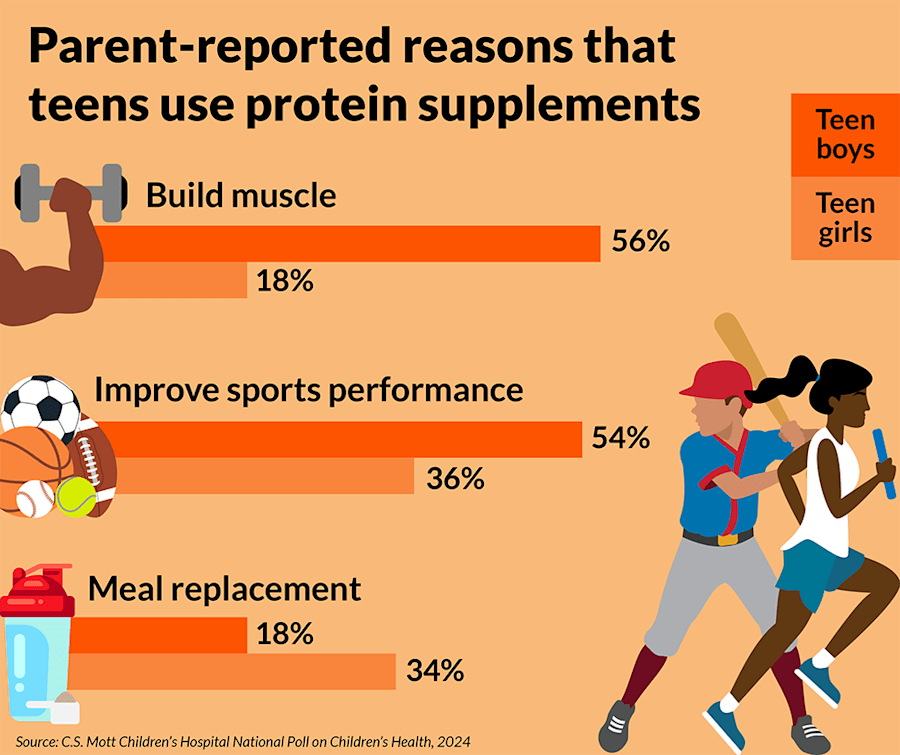Parents have a lot to worry about when it comes to teenagers -- from social media, to school stress, learning to drive, and on and on.
Now we can add “eating protein” to that list.
The C.S. Mott Children’s Hospital National Poll on Children’s Health asked a national sample of parents about protein intake and supplements for their teens 13-17 years old.
The poll found nearly 20 percent of parents believe their teenager is not eating sufficient protein.
Poll co-leader Sarah Clark said there are many reasons why a teen’s diet may lack protein.
“A lot of teens prefer junk food that’s high in sugar and low in protein. Another reason is that teens tend to be really busy, and they may not be around for three meals a day that are well balanced and contain adequate protein. And for some teens, there are unique circumstances like severe allergies or maybe the choice to follow a vegan or a vegetarian diet that can make it more difficult to get adequate sources of protein. So all of these add up to be concerning for a lot of parents,” said Clark.
Protein is essential to building muscle, growing healthy skin, hormone production, and boosting immunity. The generally recommended amount of daily protein is 46 grams per day for teenage girls and 52 grams per day for teenage boys, but each teen’s optimal amount will vary depending on their weight and how physically active they are.
The poll also found 2 in 5 parents say their teen has used protein supplements in the past year, including bars, shakes, and powders.
“One of the reasons is for meal replacement. So it may be a teen that is too sleepy or uninterested in eating breakfast, they might grab a protein bar instead. Or teens that are busy with activities or jobs and don’t have time to eat dinner, they might grab a protein bar as a meal replacement. So that’s kind of an occasional type of thing,” said Clark. “Another common reason for protein supplements is for building muscle or improving athletic performance.”
Clark said some very active teens may need extra protein.
“In general, just because a teen is physically active doesn’t mean that they have to use protein supplements, but getting additional protein, particularly when it is strenuous physical activity or training, that extra protein can help, especially with muscle recovery, because exercise can tear down the muscles, and so the extra protein helps,” said Clark.
If a teenager is using protein supplements, Clark recommended seeking help to create an appropriate diet.
“It’s really important to consult with a nutritionist or the child’s primary care provider and incorporate strategies to make sure that teen is still getting the full complement of nutrients that they need at this stage of life to have healthy development,” said Clark.
If you suspect your teenager isn’t getting enough protein, Clark recommends offering it more often. Some good sources of protein include eggs, nuts, fish, lean meats, lentils, and dairy products.
“Ideally they want to spread it throughout the day, so that means protein source at all three meals, as well as optional protein sources at snacks or other times when teens might be grabbing something to eat. Use protein as a healthy option so that teens aren’t reaching for that junk food,” said Clark.


